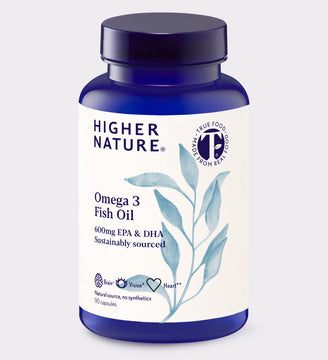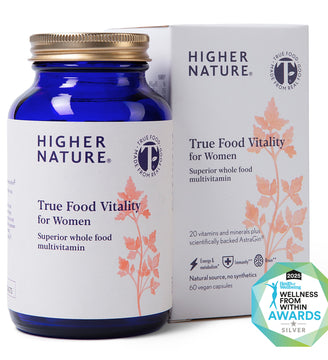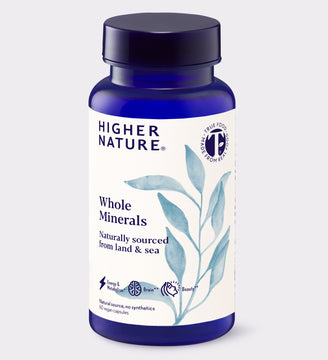
Spotlight on Quercetin
Elizabeth Houston - Higher Nature Nutritional Therapist - Dip BCNH mbant mCNHC
What is quercetin? Quercetin is a flavonoid found naturally in food. Flavonoids are a type of antioxidant that help mop up damage caused by those unstable atoms: free radicals. Antioxidants are a buzz word in the nutrition and beauty industry for good reason.
To understand the power of antioxidants, think of what happens to an apple after you have cut it in half, it goes brown right? When the apple is cut and exposed to oxygen, free radicals are released and the apple undergoes the oxidation process and turns brown, however if you add a substance high in antioxidants, such as pineapple or lemon juice, the apple is protected.
Quercetin is one of the many antioxidants found in plant foods, the benefits of a diet high in antioxidants has been linked to everything from anti-ageing to protecting the heart and even reducing cancer risk.
Quercetin has other unique abilities that make it even more special. Probably the most well-known is its role in easing the symptoms of hay fever. Anyone who has suffered from hay fever will be familiar with the unpleasant and annoying symptoms such as itchy watery eyes, runny nose and sneezing. This is a reaction to airborne substances, commonly grass or tree pollen. A hayfever sufferer’s immune system mistakes the pollen as a danger and triggers a histamine response. It’s histamine that is ultimately responsible for those symptoms which is why antihistamines are the go-to, over the counter hay fever relief. Unfortunately, many antihistamines come with side effects such as drowsiness.
Taking quercetin may help prevent immune cells from releasing histamine and therefore may help reduce not only hay fever symptoms but possibly other allergies too.
Quercetin has also been extensively studied and displayed both anti-viral and anti-inflammatory effects.
Quercetin is found naturally in many fruits and vegetables such as: onions, grapes, berries, cherries, broccoli, tomatoes, citrus fruits and apples. Unfortunately, like other antioxidants quercetin can be lost through storage or cooking and is actually poorly absorbed by the body. This is why it is often teamed up with the enzyme bromelain. Bromelain and vitamin C have the ability to help the absorption of quercetin which is why you often find them in supplements together.
Bromelain shouldn’t be overlooked either, a powerful enzyme found in pineapples bromelain helps breakdown and digest proteins and it has anti-inflammatory properties of its own. Bromelain has been traditionally used to help ease poor digestion and as a treatment for inflammatory conditions such as arthritis and post injury recovery.

















